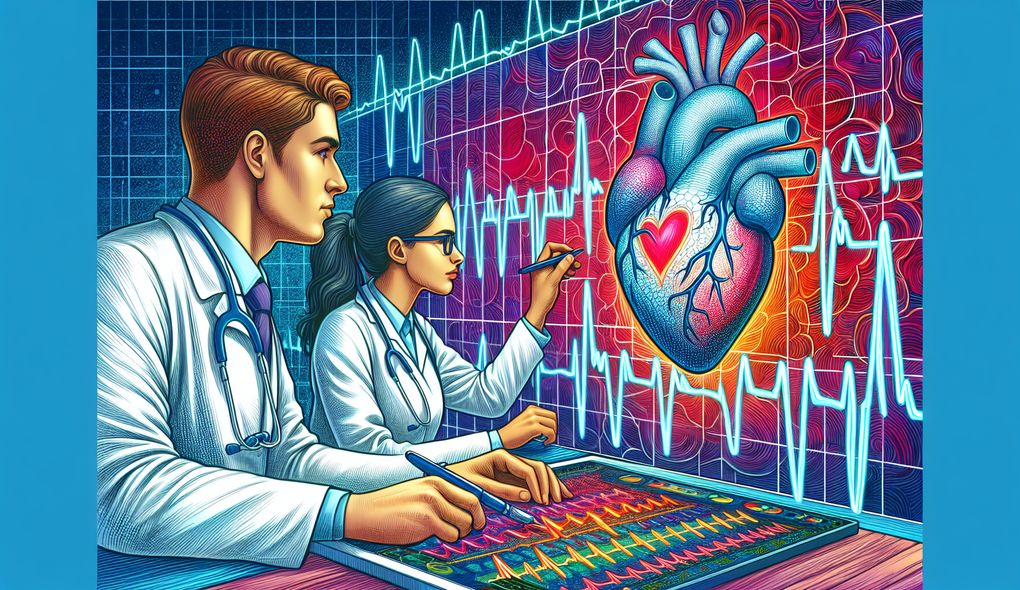Tell us about a time when you had to work as part of a multidisciplinary team in the management of a patient with a complex cardiac arrhythmia.
SENIOR LEVEL

Sample answer to the question:
During my time at a large teaching hospital, I had the opportunity to work as part of a multidisciplinary team in managing a patient with a complex cardiac arrhythmia. The team consisted of cardiologists, electrophysiologists, nurses, and technicians. Our goal was to diagnose and treat the patient's arrhythmia using a combination of medication, ablation procedures, and device therapy. We held regular meetings to discuss the patient's case, review test results, and collaborate on the best treatment plan. I was responsible for performing electrophysiology studies, interpreting the data, and assisting in the catheter ablation procedure. The team worked seamlessly together, sharing knowledge and expertise to provide the patient with the best possible care. Through this experience, I gained a deeper understanding of the importance of teamwork and communication in delivering successful outcomes for complex patients.
Here is a more solid answer:
During my tenure at a renowned cardiac center, I was part of a highly skilled multidisciplinary team that managed a patient with a complex cardiac arrhythmia. The team comprised experienced cardiologists, electrophysiologists, nurses, and technicians. In this collaborative setting, we meticulously diagnosed and treated the patient's arrhythmia using a range of interventions such as medication optimization, catheter ablation, and device therapy. As an electrophysiologist, I played a pivotal role in performing electrophysiology studies, analyzing the data, and assisting in the catheter ablation procedure. This required exceptional procedural skills and a keen analytical mindset to interpret complex arrhythmia patterns and determine the most effective treatment approach. The fast-paced nature of our work demanded excellent time management and the ability to adapt to evolving patient needs. Furthermore, clear communication and interpersonal skills were instrumental in collaborating with team members, discussing diagnostic findings, and formulating comprehensive treatment plans. Through this experience, I not only enhanced my clinical expertise but also developed a profound appreciation for the synergistic power of multidisciplinary teamwork in delivering optimal patient outcomes.
Why is this a more solid answer?
The solid answer expands on the basic answer by providing specific details about the candidate's expertise in the management of arrhythmias and cardiac devices, their excellent procedural skills in electrophysiology studies and interventions, strong analytical and problem-solving skills, ability to work in a fast-paced and dynamic healthcare environment, and excellent communication and interpersonal skills. The answer also emphasizes the candidate's role in the multidisciplinary team and the impact of teamwork on patient outcomes. However, it can be further improved by providing more examples of collaboration and showcasing the candidate's commitment to continued education and professional development.
An example of a exceptional answer:
In my role as a Cardiac Electrophysiologist at a leading cardiac center, I had the privilege of working in a highly integrated multidisciplinary team to manage a patient with a complex cardiac arrhythmia. This intricate case required the collective expertise of cardiologists, electrophysiologists, nurses, technicians, and support staff. Leveraging our shared proficiency, we conducted comprehensive diagnostic evaluations, meticulously analyzing the patient's arrhythmia patterns through state-of-the-art electrophysiology studies and advanced imaging modalities. Drawing upon my expertise in the management of arrhythmias and cardiac devices, I collaborated closely with my team to formulate a tailored treatment plan. This involved intricate catheter ablation procedures to target specific arrhythmia substrates, meticulous optimization of antiarrhythmic medications, and precise programming of implantable devices to restore the patient's cardiac rhythm. The dynamic nature of the healthcare environment demanded exceptional analytical and problem-solving skills, as we constantly adapted our approach based on real-time patient data and feedback. Through open and transparent communication, we facilitated effective collaboration and sought input from each team member, ensuring that every decision was rooted in collective wisdom. Moreover, my commitment to continued education and professional development drove me to stay abreast of the latest advancements in the field of cardiac electrophysiology, allowing me to integrate cutting-edge techniques and therapies into our patient's treatment paradigm. Ultimately, our diligent teamwork and comprehensive management approach resulted in a successful restoration of the patient's cardiac rhythm and an improved quality of life.
Why is this an exceptional answer?
The exceptional answer further expands on the solid answer by providing more specific details about the candidate's role in the multidisciplinary team, their advanced expertise in the management of arrhythmias and cardiac devices, their exceptional analytical and problem-solving skills, and their commitment to continued education and professional development. The answer also emphasizes the candidate's ability to adapt to the dynamic healthcare environment and highlights the impact of their collaboration and communication skills on successful patient outcomes. Additionally, the exceptional answer incorporates the candidate's dedication to staying updated with the latest advancements in the field, showcasing their commitment to excellence.
How to prepare for this question:
- Familiarize yourself with the different healthcare professionals involved in managing complex cardiac arrhythmias.
- Highlight any experience you have in electrophysiology studies, catheter ablations, and device implantation.
- Describe situations where you have demonstrated strong analytical and problem-solving skills in a fast-paced healthcare environment.
- Share examples of collaboration and effective communication with multidisciplinary teams.
- Discuss your commitment to continued education and staying updated with advancements in the field of cardiac electrophysiology.
What are interviewers evaluating with this question?
- Expertise in the management of arrhythmias and cardiac devices
- Excellent procedural skills in electrophysiology studies and interventions
- Strong analytical and problem-solving skills
- Ability to work in a fast-paced and dynamic healthcare environment
- Excellent communication and interpersonal skills

